Dry Dock Works!
Massive, daunting and awe inspiring. The Dry Dock is a tribute to human ingenuity and engineering feats. When you work anywhere around this kind of site, the sheer scope and size of the dock is something that boggles the mind.
As some of you may know, from this coming Monday onward I will be working in the Sturrock Dry Dock in Cape Town. For about 63 days, there will be a project done on a mining vessel and I will need to work mostly 12 hour shifts there from 7am till 7pm. The site does not shut down for the night, there is a night shift crew on board. The site does not rest a single day and is active Monday to Sunday.
Usually there are about 1700 people active during the day shift and around 600 people at night!
Work in a dry dock is usually done in order to do repairs on the hull of the ship. In the case of the mining vessel many systems are being worked on simultaneously. There are 50+ companies all working together under the direction of a plethora of Engineers, Quality Controllers and Safety Officers.
Scale and purpose
While doing a bit of site establishment I snapped some pictures of the dry dock itself and it can serve as a practical means of knowledge for personal/education purposes. The ships seen here are not the one I will be working on. The dry dock here has space for either one single large ship or for two smaller ships.
Below is a picture of one of these smaller ships. Even so, this vehicle is many hundreds of tonnes heavy.
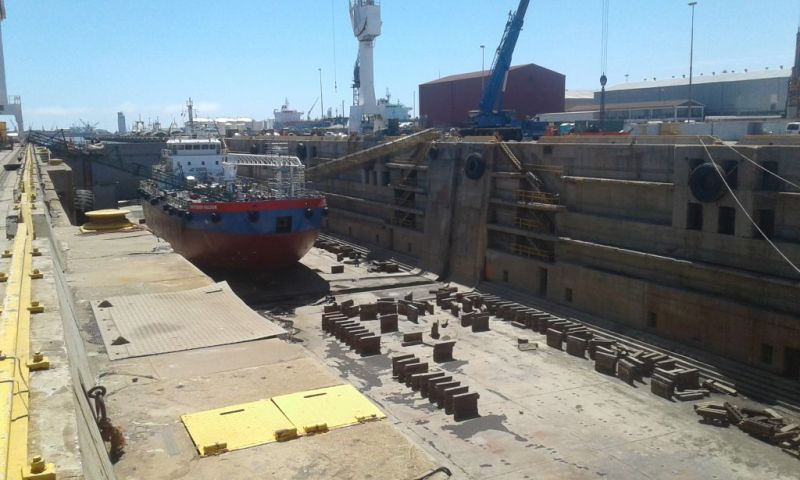
Just to get an idea of the sheer scale we are talking about, here is a zoomed in section of the picture where you can see two men walking at the bottom of the dock.
Usually companies who need to work on the exterior of propulsion systems will access the bottom of the dry dock. In terms of a mining vessel it is also possible that the companies that work in the moon pool will access the floor of the dry dock as well.
Here are some scaffolds built aft of a ship. As you can see, many levels are needed to reach the working position under
the ship.
Components and changes
One of the strangest things in a modern dry dock is seeing that there are no braces from the ship to the side wall of the dry dock. In the days that my father lived in Simon's Town, it was a common sight for a ship to be braced with long timber poles and blocks.
Here in Sturrock I have worked on three different vessels and seen many others being worked on. Not once were such timbers being used. The ships get set down on "chocks" as pictured below. These are moved around and aligned perfectly with the ship structure by divers. These massive concrete blocks are moved around under water by floating them using air and a sort of ballooned bag.
These blocks seem tiny in comparison to the ship. In real life on land they are almost as tall as I am and a forklift is required to lift just one any distance.
It is still a bit of a stretch to realize that the ship stands free on a couple loose blocks! Don't rock the boat!
Closing off the sea
Finally we get to the bit where man and nature meet and constant maintenance is needed to keep the water out of a dry dock. When the gates are not in place, the whole dry dock is full of water. The ship then enters the dock, usually guided by a pair of tug boats.
A Tug is a small ship that is 99% engine and 1% cockpit. It is a mini powerhouse and a single tug can be used to pivot an oil tanker. If one of these powerful boats had to collide with something they would cause serious damage because of the power in their movements.
Once in place, the gates go into position. These fit into grooves along the dry dock walls. Pictured below is a gate in position.
What is misleading here is to think of the gate as a solid thing. It is actually a hollow vessel that can be towed around the harbor and floats on the water. Water is pumped into it and the gate sinks into position. Water is then pumped out of the dry dock until the dock is empty. Water constantly seeps into the dry dock and the pumps keep running to keep the dry dock waterless.
Below is a picture of one of the gates that was standing in the dry dock, undergoing repairs.
The division between a deep empty space and the sea. Tonnes of water stand pressuring that divide.
Conclusion
So this will be my working environment for at least the next two months. It is a high risk site which means that the safety requirements are extra high. With so many people on site, all doing their own work it is essential that there is a daily safety meeting. This will be one of my daily duties on the site.
These meetings are not empty formalities. They effect every day's work and effective communication is key to the success and safety rating of a project.
Keep a look out later for more information about the dock and the work that goes on here. If there is something specific that you would like me to cover, please let me know!
Until next time,
Regards
Zak Ludick
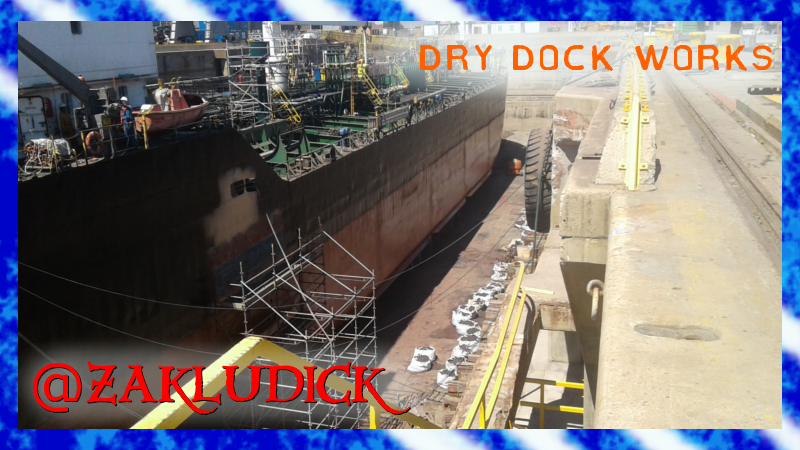


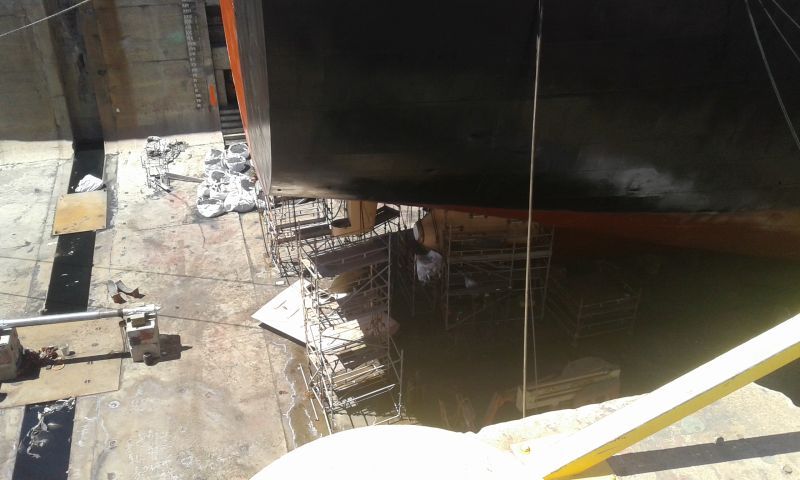
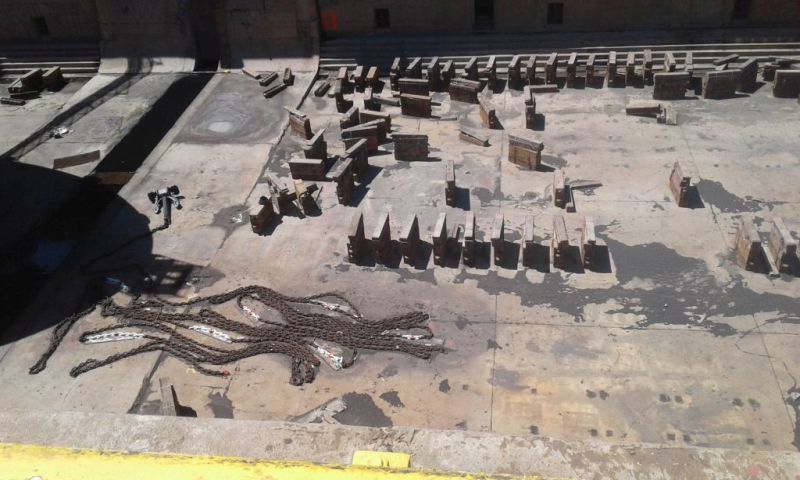
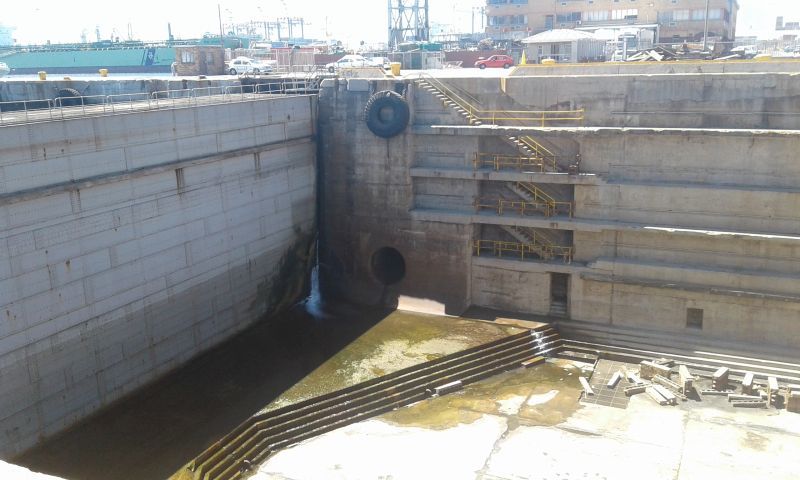
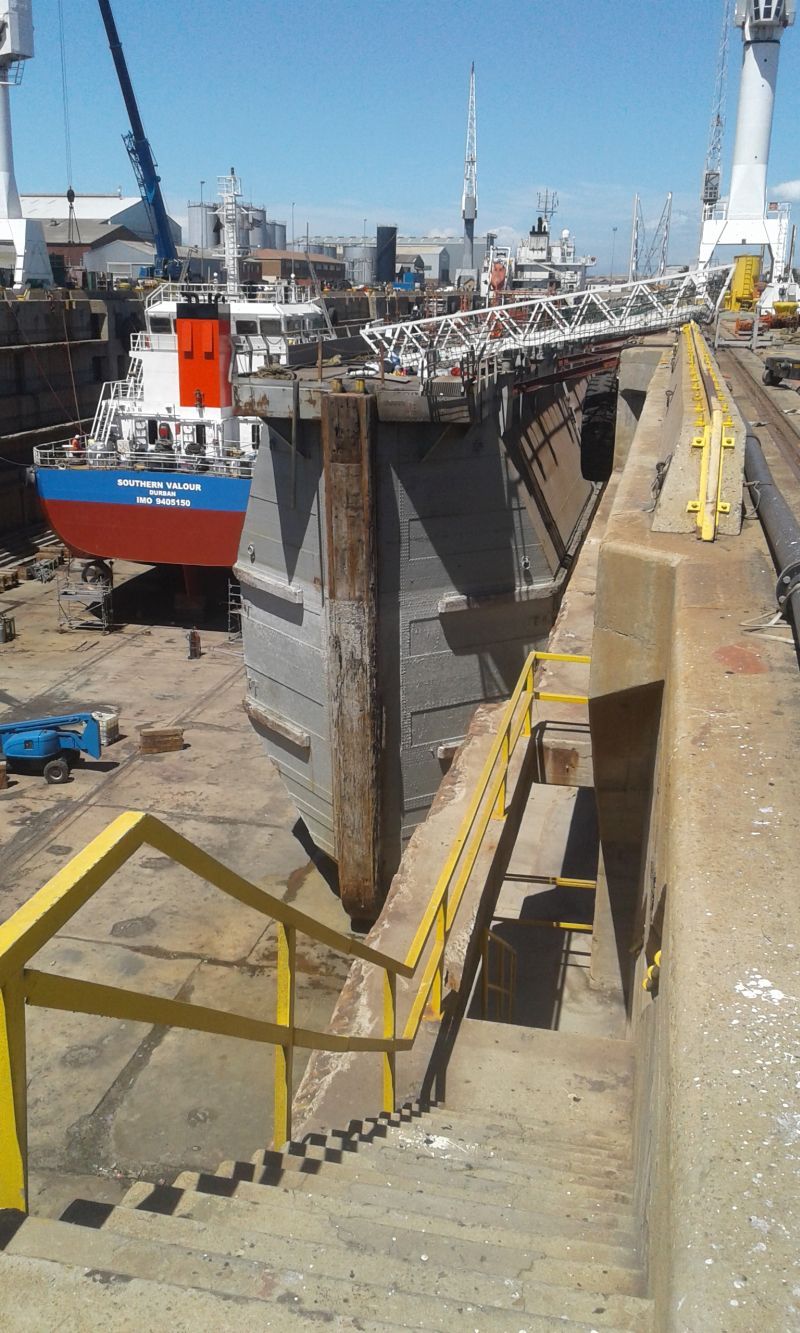
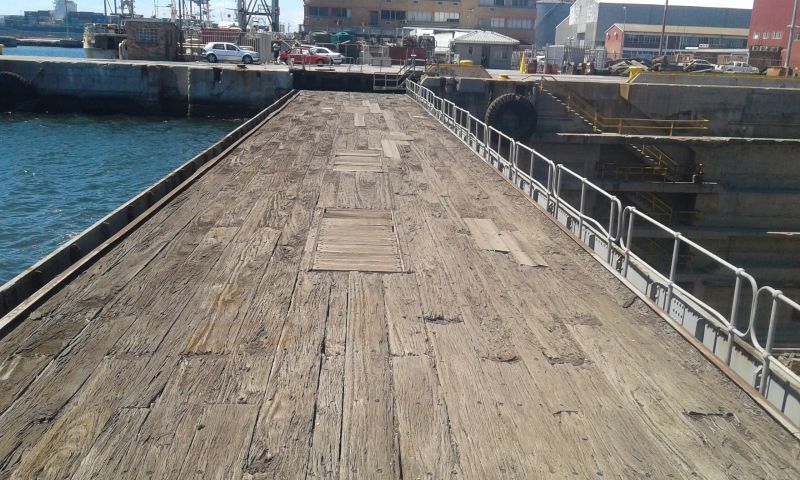
Mindboggling....It must be a sight to behold when that 50+ companies are all working at the same time, like an ant nest.
Brilliant post!
It is! Also unbelievable is that it takes us 7 5mins to evacuate all of them on a fire drill!
This description you gave is so detailed and it takes my mind back to a time my dad described this process to me and took me to a dry-dock of some kind in Durban harbour. As a welder, he would have been working on a lot of the repairs. He later did most of his work in the oil refineries including working at MOSSGAS during the 90's. Even there, the scale of construction and the complexity is on a mammoth scale.@zakludick, take care during those long shifts - get enough rest because you will need to stay alert. It is unfortunate we will probably see fewer updates as a result of your schedule. Whatever you do, don't compromise your rest my friend!.
Yeah I will do my best to keep posting though. Going to be working on making some content ahead of time. Some "ammo".
We do intend to give some fatigue management breaks, though I will see the fewest of these as I AM the management! Haha.
Very interesting walk through the job site! Stay safe, and thanks for the dry dock lesson!
Thank you! Staying safe and keeping others safe is in my job description!
That separator man, haha, BEERKING.
Epic post formatting!
fistbump I learn from the best man! Skoll!
PROST
Upvoted by Proudly South African Steemians(@psas). You can follow us for more truely South African content.
If you are from South Africa, you are more than welcome to join us on Discord. https://discord.gg/xRznW7S